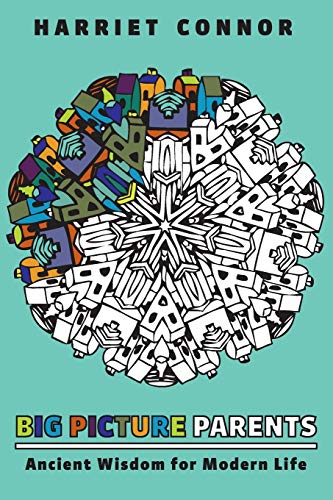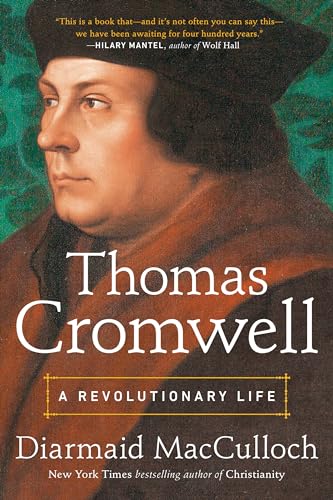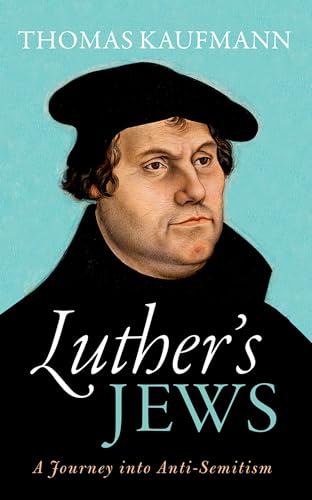Big Picture Parents: Ancient Wisdom for Modern Life
Written by Harriet Connor Reviewed By Dillon T. ThorntonHarriet Connor juggles three roles: she is a wife, a mother of three, and a Bible teacher. Connor holds degrees in International Studies (Languages) and Theology. Her book, Big Picture Parents, forgoes the superficial “should and should nots” that permeate many parenting manuals. Connor’s objective is to arm parents and guardians with a better understanding of the biblical metanarrative. A firm grasp of this “big story,” she argues, will help both parents and children find their true and meaningful place in God’s plan.
The book is composed of an introduction, four main parts, a brief conclusion, a very thorough recommended reading list, and questions for group study. The first part of the book probes the theme of purpose. Connor explains that humans were made for much more than the pursuit of happy feelings; we were designed to find meaning in relationship with others. The “big purpose” of both parents and children is to honor God, our Creator, and to show God’s love to others. “We and our children were made for more than happiness—we were made to be in relationship with God, his creation, and each other” (p. 22).
In part two of the book, Connor introduces the idea of the “big problem.” She follows the story of our first parents, Adam and Eve, who rebelled against God, thereby causing humanity’s fellowship with God, the earth, and each other to be fractured. All parents and children are now prone to sin; our sinful nature works against us living out our “big purpose” in the world. But the good news of the “big story” is that God the Father sent Jesus the Son to deal with the problem of our sin.
Following her clear declaration of the gospel as God’s definitive solution to our “big problem,” Connor discusses the “big values” that characterize God’s spiritual family. She freely admits that many of these values challenge the modern lifestyle: “God asks us to put him before our family, to prioritize rest, and to be content with what we have. He asks us to love our neighbor, to be faithful to our spouse, and to tell the truth” (p. 98). Connor both challenges and encourages families, urging them to remember that all people are imperfect beings dwelling in an imperfect world, and thus we will at times fall short of these “big values.” But God, our loving Father, stands ready to forgive us and to empower us in our journey toward Christlikeness.
The final part of the book unpacks the idea of the “big family.” Connor explains that the Bible sets out God’s ideal structure for the family: children will be raised by their biological parents, who are permanently committed to each other in marriage, and who exercise loving authority over their children. Fathers and mothers deserve equal honor, though they have different and complementary roles within the context of the family. Connor concludes by affirming that the Bible stretches our modern definition of family. “From the beginning, God has called individuals to be part of something bigger, to be part of a community that extends beyond our family or even our nation. Jesus redefined the concept of family to mean the community of those who had, by faith, become God’s spiritual children” (p. 133).
As I’ve argued in my own book, Give Them Jesus (New York: FaithWords, 2018), Christian parents must come to think of themselves as parent-theologians. This means that parents must learn to think Christianly about the world and everything in it, to live faithfully by displaying the beautiful truth of the gospel in every sphere of life, and to train their children to do the same. The task of parenting certainly involves things like determining the best bedtime and providing a balanced diet, but it cannot be reduced to these things. Parenting is about something much bigger: it’s about sending our children out into the world as faithful participants in the great gospel story. Connor’s book moves us toward the realization of this true goal of parenting, and for this reason it is a uniquely helpful resource. Where many books in this field focus (exclusively) on parenting practicalities, this volume does the more difficult and more needed work of helping parents think theologically about their roles in the home. This is not to suggest that Connor’s work is devoid of practical matters. Readers will find discussions of the influence of television, the internet, and advertising, for example. But these discussions do not dominate the book; they’re the side salad, not the steak. What sets Connor’s work apart as one of lasting value is her lucid articulation of the metanarrative of Scripture and her insistence that both parents and children will find their true purpose as they come to see themselves within this story.
Dillon T. Thornton
Dillon T. Thornton
Faith Community Church
Seminole, Florida, USA
Other Articles in this Issue
In appreciation for the recent resurgence of interest in biblical theology and typological interpretation, this article considers Jonathan Edwards’s typological interpretive practices and principles...
The Insights and Shortcomings of Kantian Ethics: Signposts Signaling the Truthfulness of Christian Ethics
by Zachary BreitenbachImmanuel Kant proposed what he considered to be the one true ethical system—a system rooted in pure reason, without recourse to grounding morality in God, that sought to explain universal moral truth...
The Doctrine of Scripture and Biblical Contextualization: Inspiration, Authority, Inerrancy, and the Canon
by Jackson WuThis essay explores the relationship between contextualization and an evangelical doctrine of the Bible, with a special emphasis on biblical inspiration, biblical authority, biblical inerrancy, and the biblical canon...
Can We Hasten the Parousia? An Examination of Matt 24:14 and Its Implications for Missional Practice
by C. J. MooreAmong the many possible motivations for mission participation, the eschatological motivation for missions has recently grown in prevalence...
“Striving for Glory with God”: Humility as the Good Life in Basil of Caesarea’s Homily 20
by Coleman M. FordBasil of Caesarea (c. AD 330–379) presents humility as the essence of the good life in his Homily 20...







